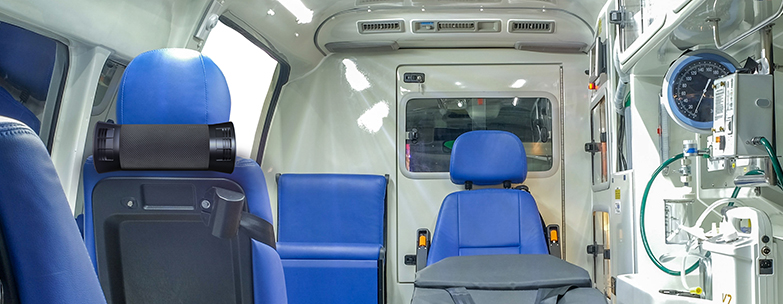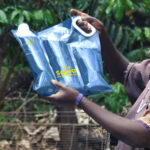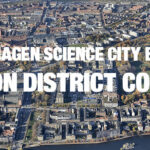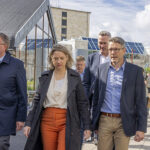Clean air to protect first responders
Ambulance personnel driving COVID-19 patients to the hospital, risk inhaling airborne virus as patients puff pathogens into the air. A novel air filtration technology developed by Copenhagen Science City- based start-up company AirLabs is now being installed in 100 patient transport vehicles operating in London. The aim? To protect the drivers, the staff and the patients inside these vehicles.
Initially intended to protect against pollution
AirLabs was co-founded in 2014 by Matthew Johnson, a University of Copenhagen professor in atmospheric chemistry. One of their first products was the “AirBubbl”, an air filtration unit about the size of a wine bottle especially developed for cars. The company brought it out to protect drivers stuck in traffic while breathing the exhaust of the vehicle in front. When new corona struck, they realized that their device might protect drivers and passengers against this virus too.
Hovering contaminants
When patients cough, sneeze, talk or even breathe, they spread tiny virus-bearing droplets into the air. Some of them small enough to float around for hours. This can spread the infection to anyone close enough to breathe in their exhalations, and there is a direct link between how much virus you inhale and how sick you get. Matthew Johnson is confident that AirLabs’ AirBubbl can help reduce exposure for workers who cannot avoid close contact with coronavirus patients, and for anyone working in essential jobs in enclosed spaces.
“The science shows that by installing air filtration devices in vehicles, it is possible to remove more than 95% of airborne particles. These so-called bio-aerosols could contain the virus. If we decrease the concentration of bioaerosols being breathed in by workers in critical environments, we reduce the risk of them being infected”: Matthew Johnson, CSO, Airlabs and Professor, University of Copenhagen.
Capacity to reduce risk
One patient exhales some 500 litres of potentially contaminated air every hour. The AirBubbl produces over 30,000 litres of filtered clean air every hour. This should ensure, that the airborne virus load in the vehicle is significantly reduced and as a result so too is the risk of exposure.
Changing focus mid-commission
The British company installing AirBubbl units in their vehicles is the healthcare transport provider the HATS Group. They originally ordered 100 AirBubbl air filtration devices from AirLabs to protect their drivers and passengers from London air pollution, explains their clinical director.
“As the pandemic hit, it quickly became apparent that we could repurpose our vehicles to help transport patients infected by SARS-CoV-2. In order to provide an additional layer of protection for our workers from exposure to coronavirus we decided to ramp up installation” Ashley Stowell, Advanced Paramedic Practitioner and Clinical Director for HATS.
Patented technology
The AirBubbl uses a high-grade F8 particle filter combined with a patented nano-carbon filter to remove both particulates and gases. The particle filter removes more than 95% of viruses and bacteria along with dust, pollen, soot, mould spores and fibres, while AirLabs’ proprietary activated nano carbon filter removes up to 95% of Nitrogen Dioxide (NO2), Ozone and Volatile Organic Compounds (VOCs). According to Matthew Johnson, this makes the AirBubbl a much better protector than the in-built air filtration system most cars have.
“There’s concern about airborne transmission whenever people are gathered in a confined space. A dedicated high-performance in-vehicle air cleaner is an important way to help protect patients and staff from exposure to the high viral loads which build inside vehicles”: Matthew Johnson, CSO, AirLabs and Professor, University of Copenhagen.
Global growth but staying in Copenhagen
AirLabs was launched in the Copenhagen Science City start-up community COBIS. It is rapidly going global but all R&D activities remain in Copenhagen, in order to stay close to the facilities, know-how and the recruitment base provided by University of Copenhagen and other actors in the innovation district Copenhagen Science City.




